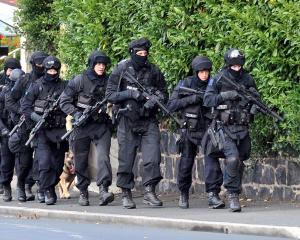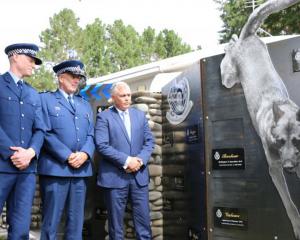
They are the drivers caught driving drunk on New Zealand roads during the past decade who have recorded the highest blood-alcohol levels, endangering their lives and the lives of others.
To reach a blood-alcohol level of more than 350mg, the average man would need to drink a 750ml bottle of whisky in less than one hour, placing himself four times over the legal driving limit and at risk of dying from blood-alcohol poisoning.
The record blood-alcohol level reading in Otago went to a Dunedin woman, who was initially breath-tested after being pulled over by police on a South Dunedin street.
Her breath test was incomplete as she exceeded a level of 2000mcg, the maximum level the breath-alcohol test was capable of measuring.
Agreeing to a blood test, the woman recorded a blood-alcohol level of 432mg.
The legal limit for an adult is 80mg.
Environmental Science and Research alcohol analysis unit science leader Allan Stowell said the New Zealand and Otago top 10 blood-alcohol levels were "very high".
For a social drinker who drinks moderately these results "would almost certainly result in gross intoxication: badly slurred speech, very poor co-ordination, difficulty standing and possibly unconsciousness or death".
"People who drink a lot and often, develop tolerance to the effects of alcohol.
Some of these people might not show very obvious symptoms of intoxication at these high blood-alcohol levels.
"However, this does not mean that they are not impaired, especially in relation to activities such as driving."
An estimated one in 10 drivers who fail a breath test opt for blood tests, with drivers less likely to receive a better result opting for blood.
"If you fail the breath test, your chances of passing the blood test are very slim."
During the past decade, there has been a steady increase in the number of blood-alcohol tests conducted, from 4069 in 2001 to 7098 in 2009, with 6500 tests estimated for 2010.
Dr Stowell said the alcohol breath measurement devices used by the New Zealand Police were "very accurate and precise", but the quality of the reading was dependent on the sample.
"If the breath sample is not ideal, then it doesn't matter how accurate or precise the "breathalyser" is, the test result will not be ideal either."
If breath samples could be taken from deep within the lungs then they would be at least as accurate and precise as blood test results.
"But the police can't take deep lung breath samples without poking tubes down drivers' windpipes.
"They can only sample the breath as it exits the mouth."
Asked what urban legends he had heard in connection with drink-driving tests, Dr Stowell said he had heard of how didgeridoo players can "beat' a breath-alcohol test by drawing air through the nose at the same time as breathing through their mouths.
"If this is correct and they can satisfy the stringent airflow requirements of the breath-testing devices, which I doubt, they could significantly lower their breath-alcohol test results."
Southern District road policing manager Inspector Andrew Burns said "people do all sorts of things" to try to hide the alcohol in their breath, such as sucking instead of blowing, or blowing faintly.
The best advice for people wanting to enjoy the social Christmas period was to plan transport before going out.
"Organise your ride before you go out, otherwise that is when poor decisions are made," Insp Burns warned.









